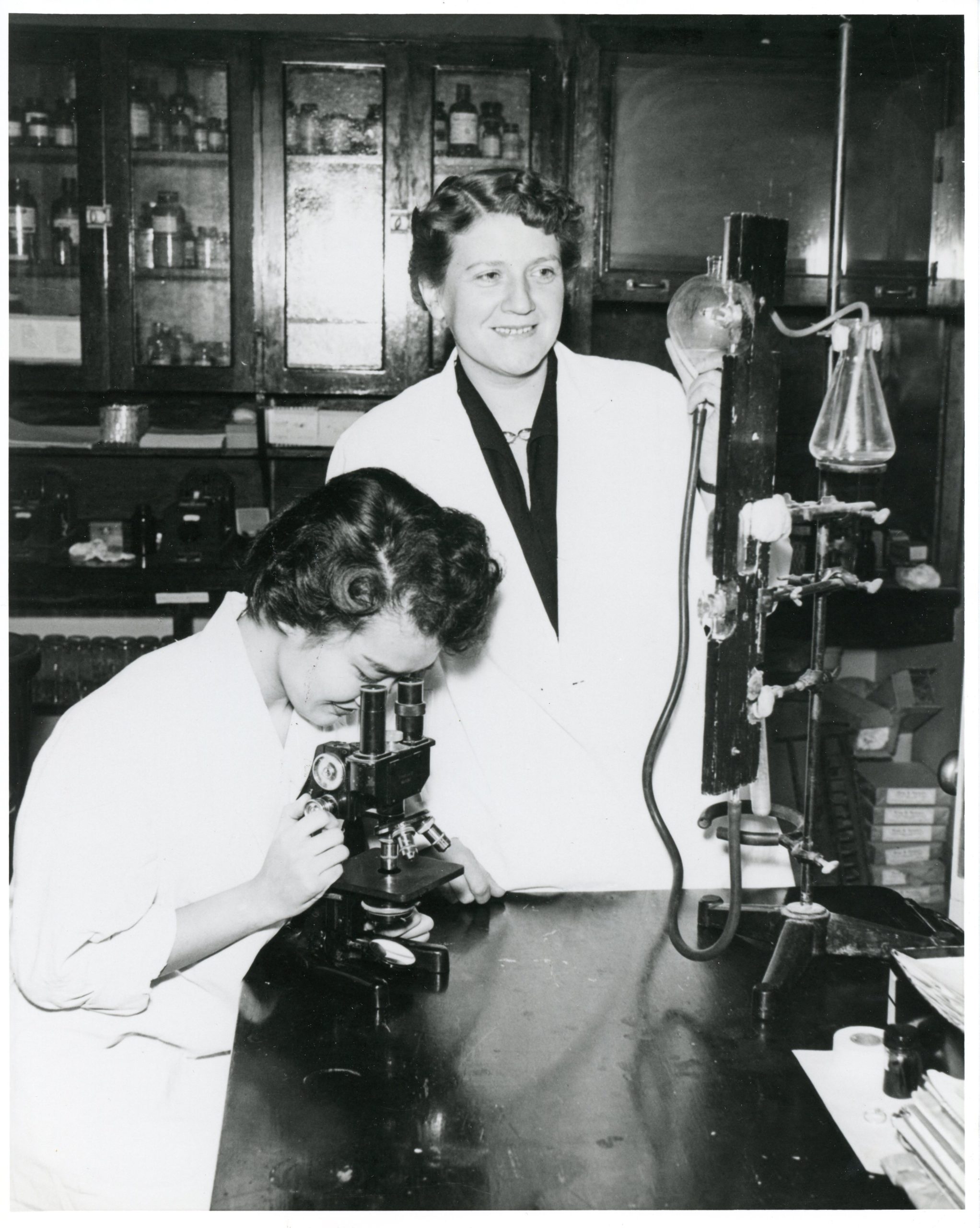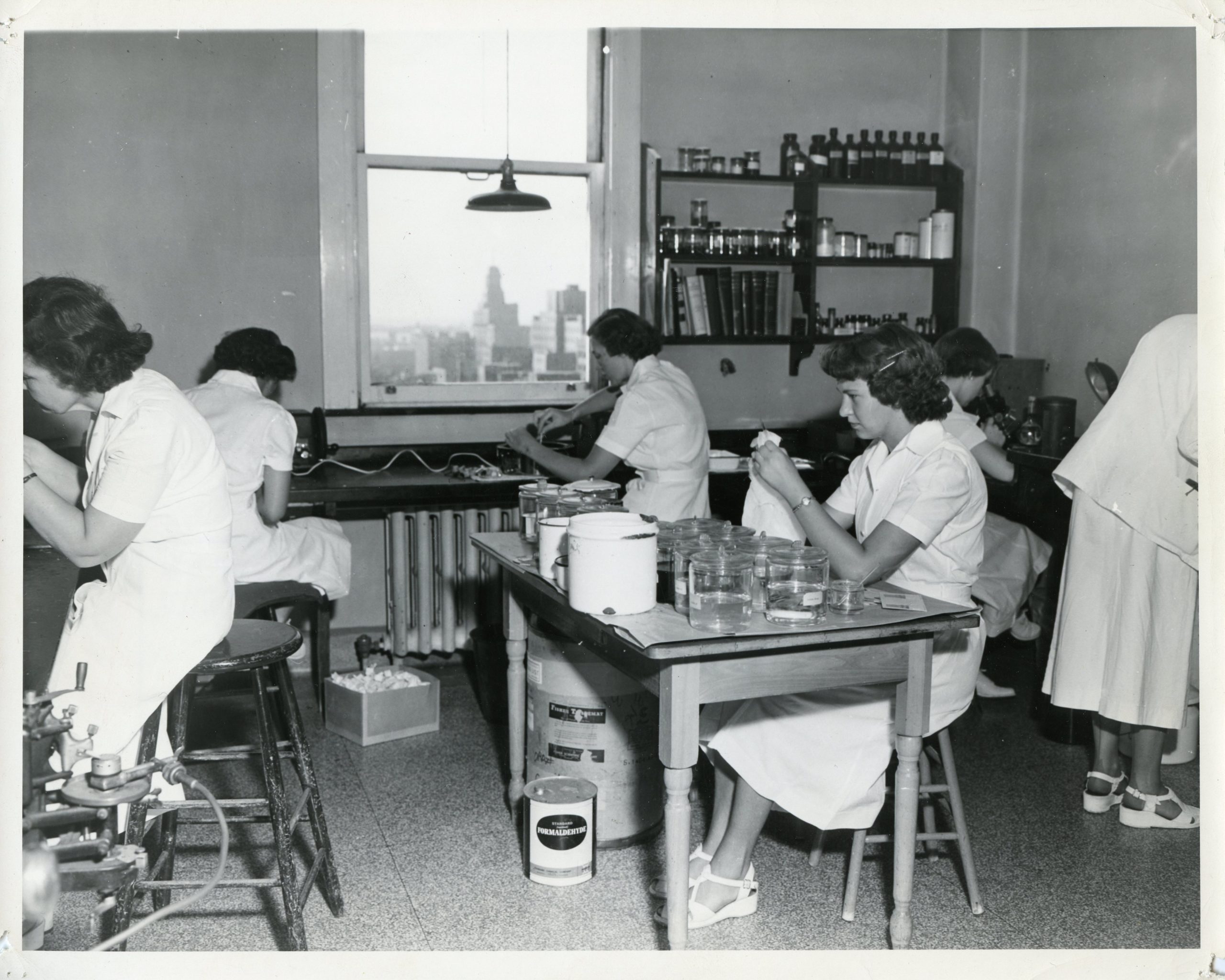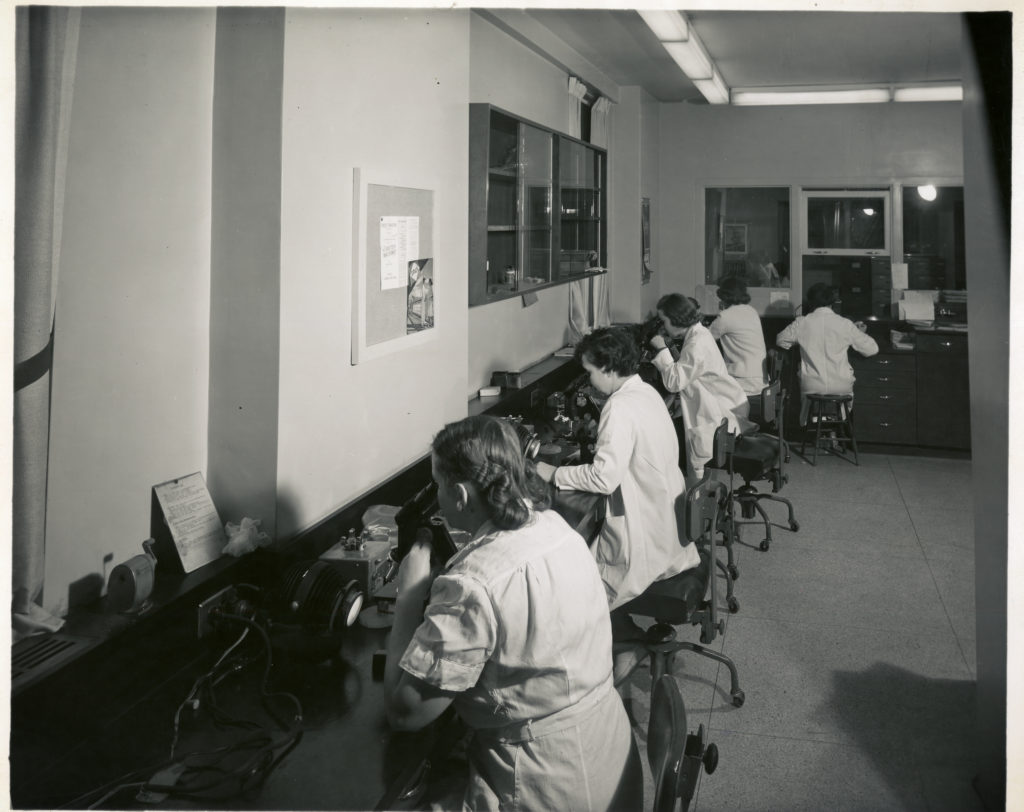
Medical laboratory professionals have played a vital role in patient care at Women’s College Hospital (WCH) for over 100 years. This National Medical Laboratory Week we look back at how WCH has helped women gain access to this important profession.
WCH’s Department of Laboratories was established in the summer of 1920. In keeping with WCH’s original mandate of providing educational opportunities for women in medicine, in the 1930s the department founded a medical laboratory technician training program for young women.
In Canada, education for laboratory technicians became standardized with the founding of the Canadian Society of Laboratory Technologists (CSLT) in 1937. WCH and its laboratory technician course became recognized as an approved site for training. WCH’s one-year course was open to young women with high school diplomas who had completed courses in science and mathematics. The course was taught by WCH’s senior lab technicians and was comprised of both theoretical and practical training in the lab. Coursework covered “bio-chemistry, bacteriology, haematology (blood diseases), serology (syphilitic tests), histology (tissues), also some basal metabolism and electro-cardiograph work.” Graduates were presented with a graduation pin and then became eligible to write the CSLT examination to receive certification in the field.
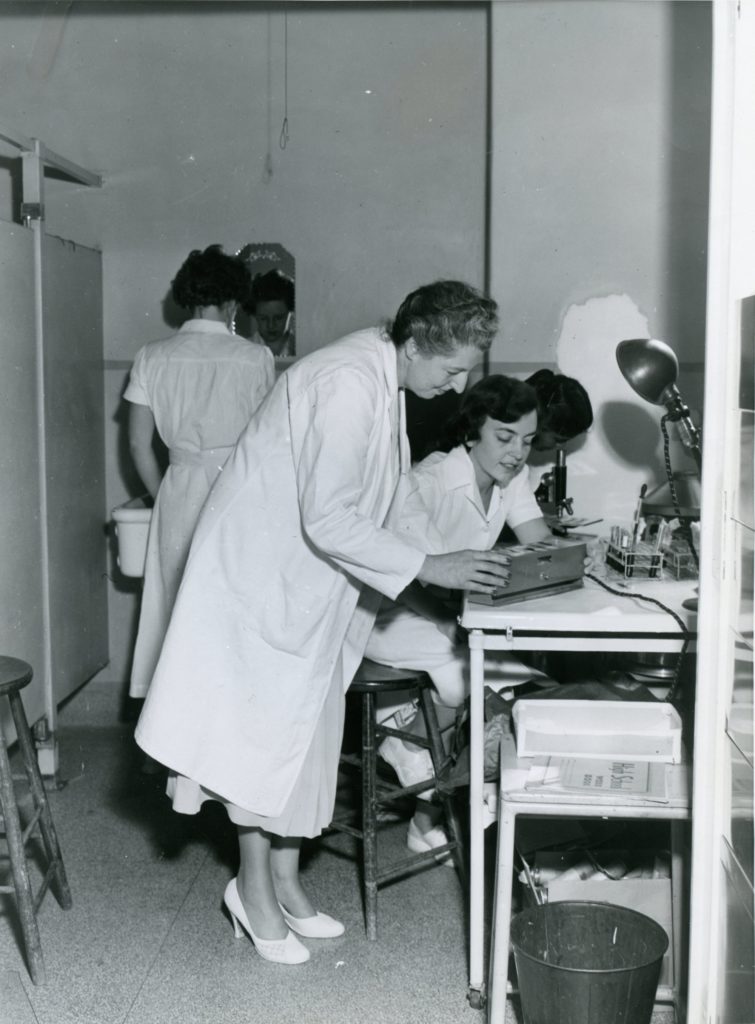
In 1945, Dr. Eva Mader Macdonald was appointed WCH’s Director of Laboratories. Decades earlier, she had started her own career in laboratory sciences thanks to a fellowship at the Connaught Laboratories with the University of Toronto’s School of Hygiene. She was personally aware of the obstacles that women faced in the field and understood that women needed encouragement and support if they were to be successful. Under her leadership, WCH expanded its medical lab technician training course and she helped to create new ways to encourage women to train in advanced laboratory sciences such as the introduction of an annual pathology fellowship for women. When Dr. Mader Macdonald resigned from the department in 1952, forty female graduates of the WCH laboratory technician course gathered to honour her for her encouragement and mentorship over the years.
By 1955, there were now six Toronto hospitals offering approved CSLT laboratory training courses, with WCH proudly boosting that its class of ten women student technicians was “the largest class in any city hospital.”
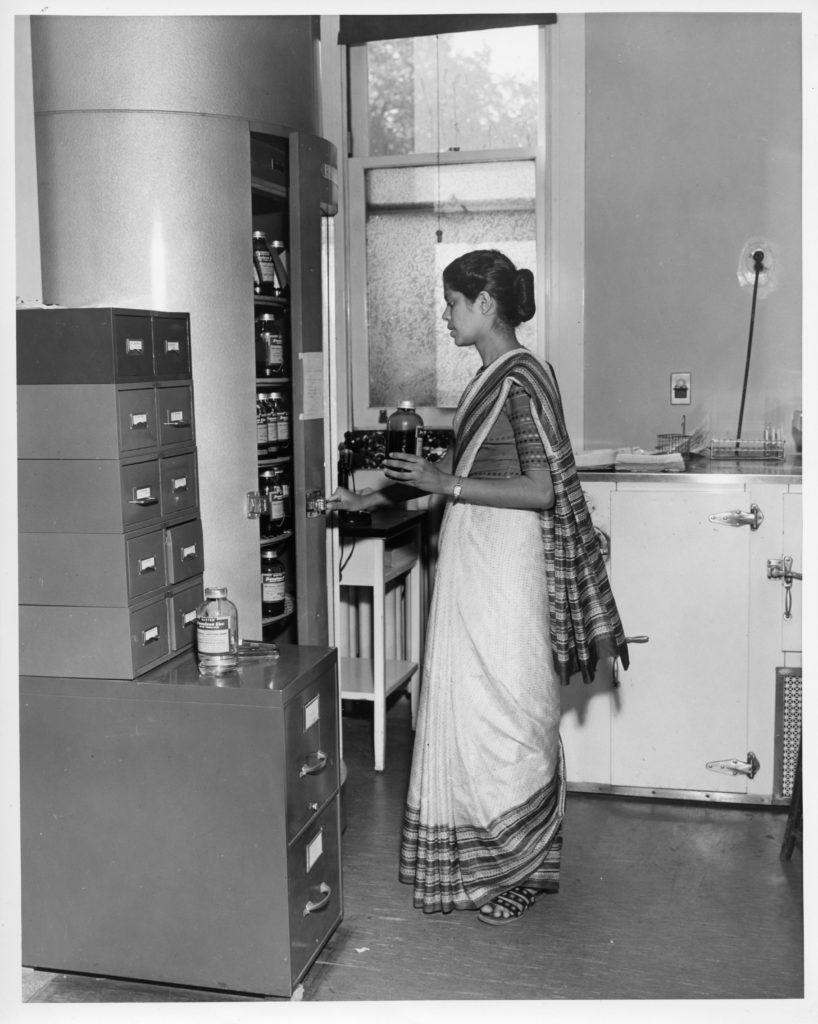
While WCH’s program was only open to women, it should be noted that the laboratory technician profession in Canada was quickly becoming dominated by women. According to the 1951 Canadian Census, there were 5,447 female laboratory technicians working in Canada – making up 38% of the field. In the 1950s, newspaper headlines reading “Lab Girls to Receive Titles, Pins” became commonplace. The profession of laboratory technician had become very appealing to young women. As one article from 1955 explained “While the field of laboratory technology is open to both men and women, the majority in it, are women. Many girls want to do hospital work, like chemistry, but nursing does not appeal to them. Some prefer the shorter course of the technologist.”
Hospital-based medical laboratory technician training courses, like the one at WCH, became instrumental in enabling women to gain access to careers in laboratory sciences. Over the decades, WCH continued to expand training opportunities for women in the lab. In the mid-1950s, the hospital received approval from the Royal College of Physicians and Surgeons to begin a post-graduate medical education program in clinical pathology and bacteriology. In 1957, WCH welcomed its first two female trainees.
This National Medical Laboratory Week we celebrate the contributions of medical laboratory professionals and WCH’s proud legacy of early leadership in the training of women in laboratory sciences.
